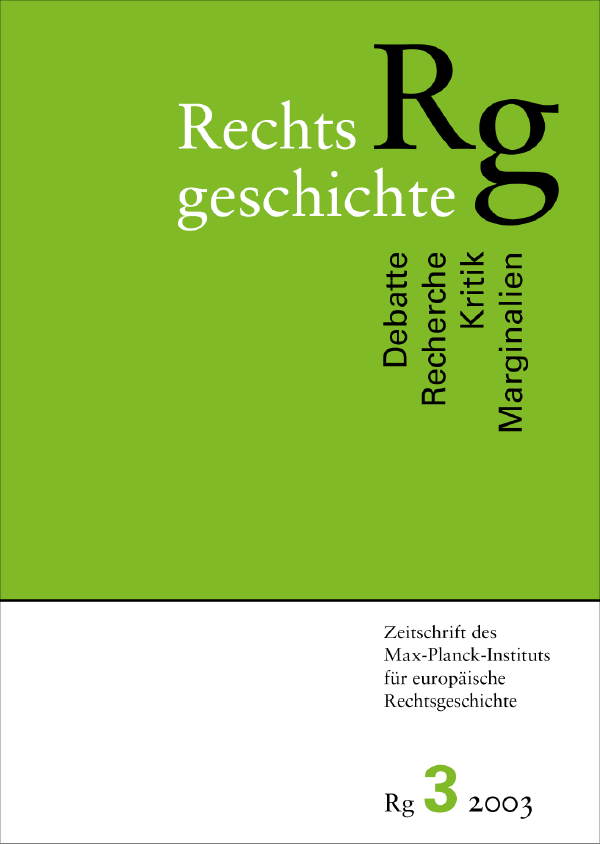Diritto e storia nelle società del tempo perduto
DOI:
https://doi.org/10.12946/rg03/045-048Abstract
What role can historical science aspire to in an era marked by the separation of law from the chains of the past? The reply of the author is a double one. Even in the age of global law, knowledge is guided by prior comprehension of a historical nature. The connection with tradition is revealed not only by continuities between past and present, but also by breaks and changes. Tradition lives within us even when we perceive more acutely the sense of separation. On the other hand, precisely a conscious adhesion to tradition is the best condition for recognising and thematizing the change. Only those who trust in a historical-dynamic rather than dogmatic comprehension of tradition can at the same time preserve its sense and measure the distance between it and the present.
Faced, then, with the ethico-political questions raised by the juridical changes of our societies, historical consciousness continues to have an irreplaceable pedagogical function: it promotes clarity and a sense of responsibility, reinforces the capacity of judgment, teaches the necessity of recognising problems in all their complexity, and illuminates practical behaviour on the consequences of actions.
Downloads
Published
How to Cite
Issue
Section
License
Copyright (c) 2003 Author

This work is licensed under a Creative Commons Attribution-NonCommercial-NoDerivatives 3.0 Unported License.





